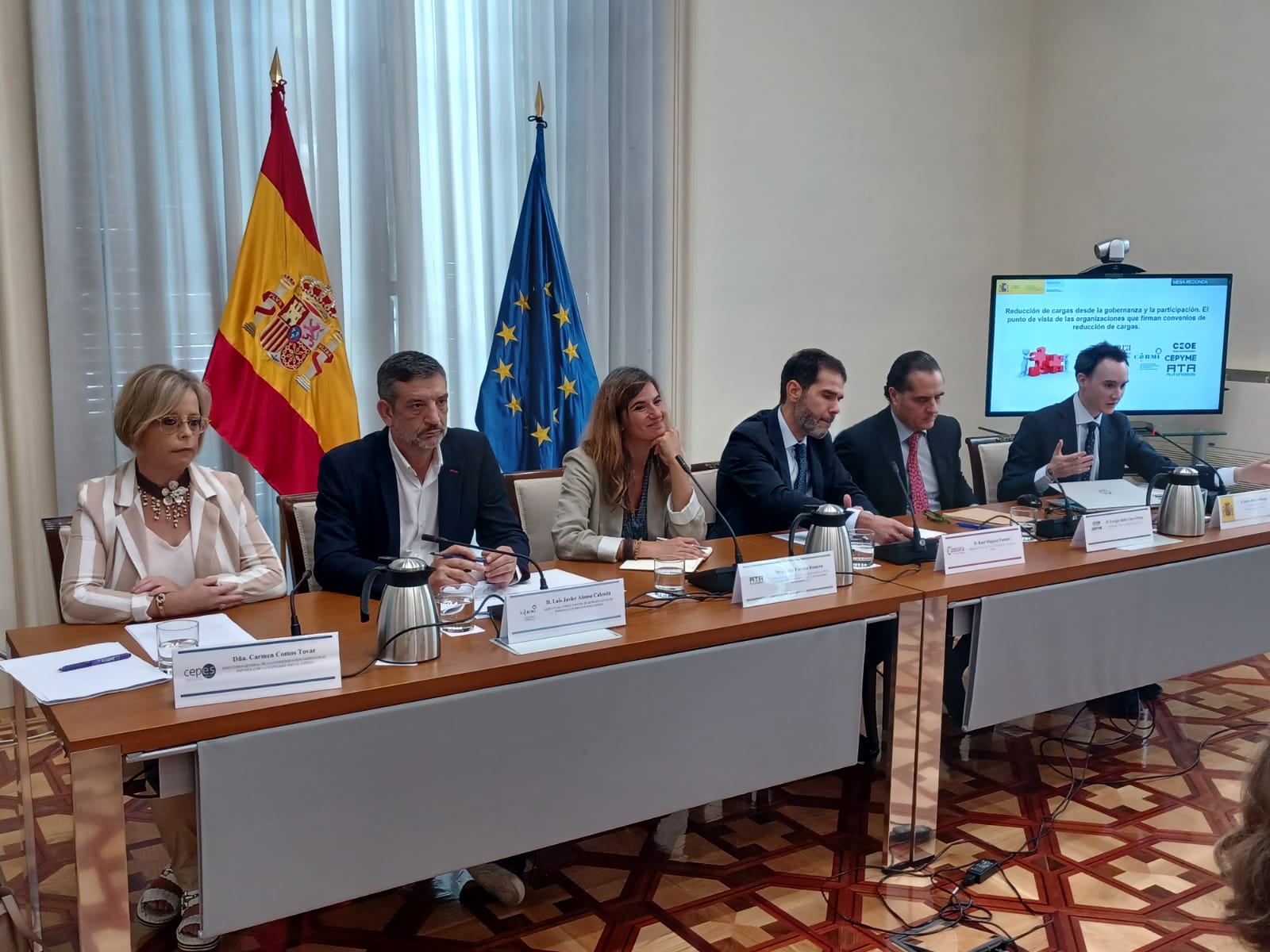CEPES collaborates with the Ministry of Finance to reduce administrative burdens in the creation and development of social economy companies
26 09 2022
0 Comments
CEPES has participated this Friday in the conference Fifteen years of policy of administrative simplification and reduction of burdens: balance, context of the EU and future challenges', organized by the General Directorate of Public Governance to value the work of detecting administrative obstacles that are being carried out by the different business and social entities with the aim of simplifying processes. CEPES, as a result of the agreement signed with the Ministry of Finance and Public Function, has committed to work to eliminate up to twenty administrative obstacles that have been previously identified by 16 member partners and 10 companies and experts. Up to a total of 40 expert professionals with multidisciplinary profiles are participating in this process that will be very useful for the creation and development of social economy companies.
• The employers of the Social Economy participated this Friday with the General Directorate of Public Governance in an act called ´Fifteen years of policy of administrative simplification and reduction of burdens: balance, context of the EU and future challenges´
• CEPES has identified up to 20 administrative obstacles thanks to the work carried out by 40 expert professionals in the sector formed by different multidisciplinary teams
• The event was also attended by CEOE-CEPYME, the Chamber of Commerce of Spain, CERMI and ATA
Madrid, September 26, 2022.- The Spanish Business Confederation of the Social Economy (CEPES) is collaborating closely with the Ministry of Finance and Public Function to reduce administrative burdens in the creation and development of social economy companies, "and thus meet the demands of people and groups interested in the processes related to the creation and development of this type of companies".
This was highlighted by the director of CEPES, Carmen Comos, this Friday at the conference ´Fifteen years of policy of administrative simplification and reduction of burdens: balance, EU context and future challenges´, organized by the General Directorate of Public Governance to value the work of detecting administrative obstacles that are being carried out by the different business and social entities with the aim of simplifying processes.
These days were inaugurated by the Director General of Public Governance, Clara Mapelli and participated, in addition to the five entities with which the Ministry has signed agreements, representatives of the European Commission.

Within the framework of this day, CEPES, through the Agreement signed with the Ministry of Finance and Public Function, has committed to work to eliminate up to twenty administrative obstacles that have been previously identified by 16 member partners and 10 companies and experts. Up to a total of 40 expert professionals with multidisciplinary profiles are participating in this process that will be very useful for the creation and development of social economy companies.
The members of CEPES who are participating in these works are representatives of Agri-food Cooperatives, Associated Work Cooperatives, Teaching Cooperatives, Housing Cooperatives, Labor Societies, Fishermen´s Guilds, Insertion Companies, Special Employment Centers and disability entities. Entities from Catalonia, Navarre, Murcia, Andalusia, Galicia, Madrid, valencia, the Valencian Community, Asturias and the Basque Country have participated in the autonomous community.
During his speech, Comos valued the work done by the Ministry during the last fifteen years to reduce administrative burdens with a result that has become particularly visible in recent years, "and thanked the participation of CEPES in this initiative and join the learning of all the entities that participate in it."
The director of CEPES said that, despite the improvements derived from digitalization, which facilitate the presentation of documentation and the traceability of procedures, there are still many aspects to improve. Specifically, some of the obstacles detected are related to the possibility of consulting ex officio, upon request for permission to the entity in question. Although much progress has been made in matters related to Social Security and the Treasury, this possibility is not generalized in all procedures or for all types of information, nor for all territorial administrative levels (General State Administration (AGE), Autonomous Communities (CCAA) and City Councils). CEPES has insisted on the need to work on the harmonization of administrative procedures and platforms, especially at the level of autonomous communities and local entities.
On the other hand, the need to streamline processes through the provision of responsible statements, instead of all documentation, in the incipient phases of the processes was also pointed out.
The director of CEPES stressed the need to design mechanisms that allow coordination between administrations of different territorial levels and avoid the disconnection that currently exists between regulatory policy and administrative processes, especially at this time where there are many procedures, tenders, contests and subsidies resulting from the Next Generation Funds.
The Spanish Confederation of Business Organizations (CEOE) - the Spanish Confederation of Small and Medium Enterprises (CEPYME), the Spanish Chamber of Commerce, the Spanish Committee of Representatives of People with Disabilities (CERMI) and the National Federation of Associations of Entrepreneurs and Self-Employed Workers (ATA) also participated in this event.
Latest news
27 December 2023
The Social Economy is the enterprise model with the greatest presence in rural areas and medium-sized cities and the greatest resilience to job destruction.
17 October 2023
CEPES proposes the creation of a Euro-Mediterranean strategy for the region's social economy enterprises and organisations.
25 January 2023
Madrid will host at IESE Business School the presentation of the study 'How partnerships strengthen the social economy'
Tags

